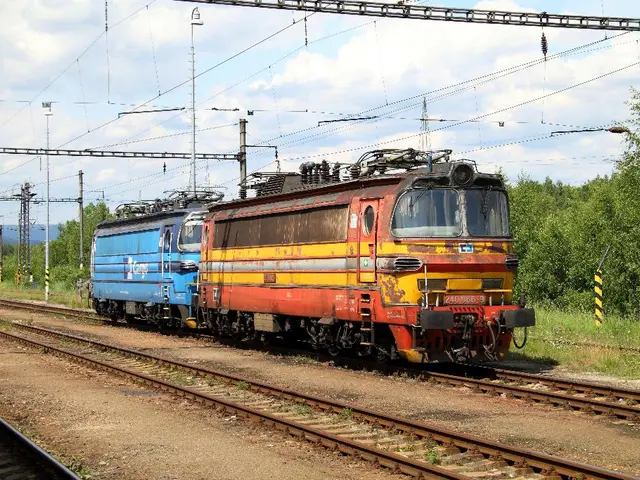State-owned energy company in South Africa aims to boost earnings through Bitcoin mining operations.
South Africa's power provider, Eskom, is grappling with technical and economic challenges that have led to power outages and high electricity prices. However, a potential solution may lie in Bitcoin mining, a digital currency that requires significant amounts of electricity for its creation.
Eskom's future depends on its ability to use its power capacities flexibly and market-oriented due to growing competition from decentralized and renewable energies. The company is exploring the possibility of using its power capacities for Bitcoin mining as a means to generate additional revenue and improve profitability.
At current tariffs, mining a single Bitcoin in South Africa would cost over 122,000 US dollars in electricity costs. This is significantly higher than in five other African countries, where the costs for mining a Bitcoin are under 10,000 US dollars. Ethiopia, for instance, costs less than 2,000 US dollars per coin due to its reliance on cheap hydropower.
In contrast, Bitcoin mining could offer a potential solution for Eskom. With the right incentives, this digital gold rush could help Eskom remain profitable, manage its debt, and stabilize power grids. The South African government is considering tax incentives, regulatory 'sandboxes,' and sustainable mining models to encourage Bitcoin mining.
One company already active in the area of Bitcoin mining and renewable energies is South African venture capital firm Transvaal VC. Ethiopia is also emerging as a potential new center for Chinese Bitcoin miners. African Bitcoiners predict moderate growth in South Africa's Bitcoin hash rate by 2030.
However, Eskom's foray into Bitcoin mining is not without challenges. Between June 13 and 19, 2025, power plants with a total capacity of over 15,000 megawatts went offline. Eskom is frequently forced to reduce power load to maintain grid stability, and had to purchase large quantities of diesel and burn it in open gas turbines to avoid load shedding.
Moreover, municipal debts have accumulated to around 90 billion ZAR (approximately 5 billion USD) and could reach 3.1 trillion ZAR (around 174.5 billion USD) by 2050. Eskom's business model is expected to face increased competition from independent power producers, putting further pressure on the company.
Despite these challenges, Eskom is not alone in its pursuit of sustainable mining models. These models aim to integrate miners directly into local communities through company investments in infrastructure or social programs. By doing so, they hope to create a symbiotic relationship between Bitcoin mining and South Africa's energy needs.
As Eskom navigates these challenges, it looks towards Bitcoin mining as a potential solution. Whether this digital gold rush will pan out remains to be seen, but one thing is certain: South Africa's energy landscape is poised for change.







